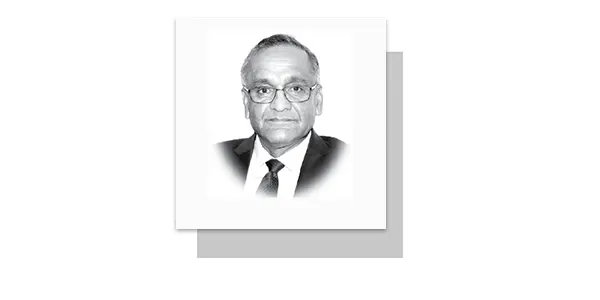MEETING of the Shanghai Cooperation Organization (SCO) Heads of Government (HoG) is in progress in Islamabad. Event is important, among other reasons, for being the first one of that high level and scale being hosted in Islamabad after a gap of decades. With main roads in Islamabad brightly lit and decorated, city is all set to hosting its honourable guests. SCO is a ten member intergovernmental organization with a broad mandate. Besides Pakistan, SCOs full members include China, Russia, Kazakhstan, India, Kyrgyzstan, Tajikistan, Uzbekistan, Iran and Belarus. The Organization was established in 2001 as build up on the Shanghai Five Group (China, Russia, Kazakhstan, Kyrgyzstan, Tajikistan) which was set up in 1996. Shanghai Five focused on Confidence Building Measures (CBMs) in Military field and Border issues. That was in the years following the dissolution of Soviet Union that had led to the independence of the Central Asian Republics.
In its early years, SCO focused on efforts to curb terrorism, separatism and extremism in Central Asia. Over the years its mandate massively expanded and its focus shifted to economic collaboration and cultural exchanges. The Organization aims to, inter-alia, strengthen mutual trust and good-neighbourliness; maintain peace, security and stability in the region and; increase cooperation in economy, energy and transport. Note worthy among SCOs goals is to promote a new democratic, fair and rational international political and economic international order. The organization takes pride in upholding the “Shanghai Spirit” that underpins core values of mutual trust, mutual benefit, equality, and respect for diverse cultures. It advocates sovereignty and non-interference in domestic affairs. The 23rd Meeting of Heads of Government starting today will be well attended. Of the ten member states, eight including China and Russia are represented by their Prime Ministers; Iran by its First Vice President and India by its Foreign Minister. In public optics, the lower level of India’s participation is attributed to its relations with the host Pakistan and Narendra Modi’s unwillingness to visit Pakistan. In reaching that conclusion, one could be missing an other important aspect.
India’s lower level of participation in the current meeting also needs to be seen against the backdrop of India’s persistently declining interest in SCO in the recent years. India was also represented by the Foreign Minister Jaishankar at the SCO Summit meeting in Kazakhstan in July this year. Prime Minister Modi opted not to participate in the Summit virtually. At that meeting too, India stood out for its lower level of participation. All other countries were represented by their Presidents or Prime Ministers. Earlier, in 2023 when India itself was the Chair of SCO, it hosted the SCO Summit on a virtual format rather than an in person event. So it is third time in a row and a consistent pattern in recent years that India has scaled down its participation in SCO. Venue of the meeting [Pakistan] could be one of the reasons for India’s participation at Foreign Ministerial level.
Here understanding SCO’s global positioning is important. Many view SCO as a counterweight to the US led West; offering an alternative to the western political and economic world order. Presence of China as the dominant factor and together with Russia as an important founding member fuels that perception, especially in the current scenario of Ukraine war. To that one could add the SCO’s own nuanced statements in the recent years. Just to quote one, Astana Summit Declaration of July this year said that “unilateral and unrestrained build-up of global ballistic missile defence by individual countries or groups” was impacting international security and stability. The Declaration considered it unacceptable that “one’s security and stability should be ensured at the expense of others”. To most observers and analysts, it was a thinly veiled reference to the United States. This was one of the several instances where SCO statements were seen as offering an alternative to the existing world order that was at odds with the existing West dominated systems.
India is the only SCO member country that is a part of the US led QUAD that includes US, Australia, Japan and India. India is also the only SCO member country that is not a part of BRI. There is a perception that in scaling down its presence in SCO, India is actually trying to reduce its weight in SCO to maintain its compatibility with QUAD and the Western block. That perception is not unfound. Under Modi since 2014, India has been increasingly tilting towards the US and the West. On several issues, its position is at variance with the rest of the SCO members and the nuances of the SCO as an organization. SCOs mandate span way beyond strategically neutral developmental issues. That is relevant. In Diplomacy, one can play in the areas of overlapping interests of two rivals, but not at the cross roads of strategically clashing interests or ideologies. Things don’t work that way. In such situations, balancing acts are difficult to play and ultimately choices have to be made. Indian decision to participate at Foreign Ministerial rather than Head of Government level is consistent with both, its declining interest in SCO, as well as its past record of putting bilateral disputes above multilateralism.
—The writer is former Special Secretary, Pakistan Foreign Ministry and former Ambassador to Nepal and South Africa.










